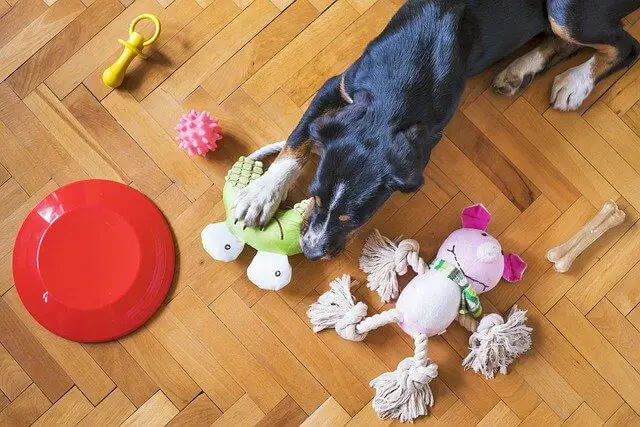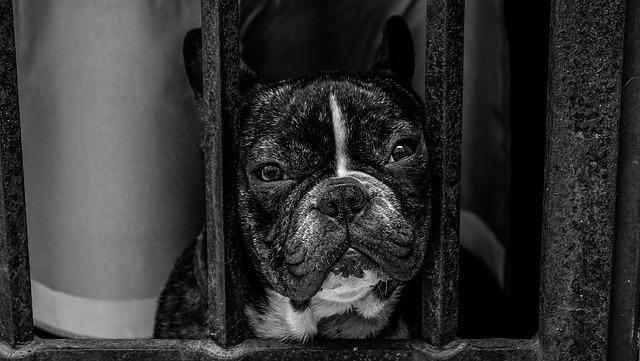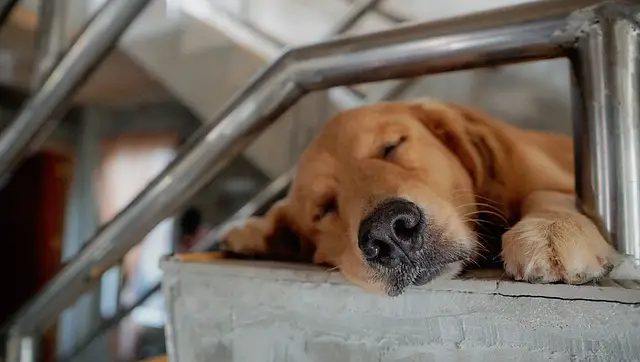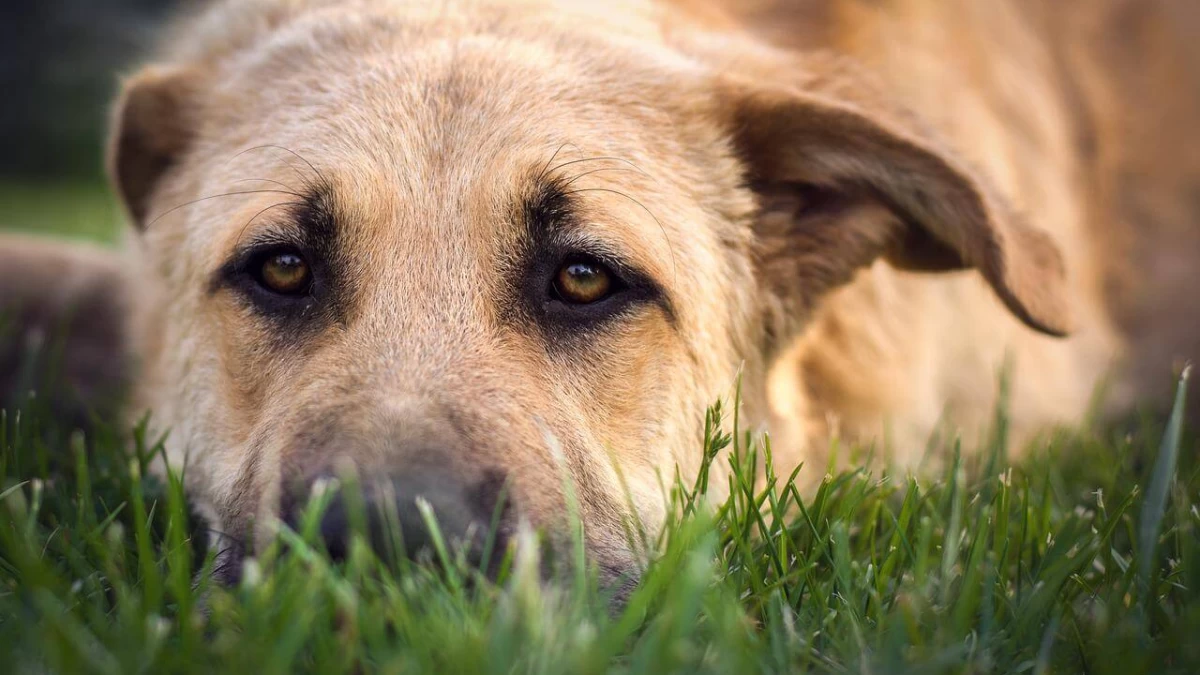Intestinal Blockage in Dogs: Signs, Causes & Treatment
05.05.2022.
If you have a dog who is an enthusiastic chewer, you may be concerned about intestinal blockages. In some situations, extensive surgery may be necessary to save a dog's life if this issue becomes complicated. Our veterinarians see this problem regularly. If you're worried about your dog's health, here are the most important things you need to know about intestinal blockage in dogs.
What is an intestinal blockage in dogs?
Intestinal blockage or obstruction is a blockage of the intestines that prevents the passage of solid foods or liquids. This can obstruct nutrient and water absorption, resulting in dehydration and electrolyte imbalance in your dog's body.
As a result, the blockage can cause intestine damage by putting pressure on the walls of the dog's intestines and cause necrosis or perforation.
RELATED: Von Willebrand Disease in Dogs: Symptoms, Causes & Treatment
How do intestinal blockages happen?
Most canine intestinal obstructions are caused by foreign bodies being swallowed. Toys, bones, corn cobs, and even clothing have been eaten by dogs. However, the most common objects that cause obstructions in dogs are socks and underwear. Perforating the GI tract lining with sharp objects can result in life-threatening internal bleeding.

In the same way a drawstring tightens a hood or a waistband, the linear foreign body caused by rope toys, strings, and similar things can cause the intestines to shrink. Gastric acids can only partially dissolve or digest many foreign objects. Contact your vet as soon as possible if you see your dog eat something that could create a blockage.
Intestinal obstructions can happen for all sorts of reasons, including but not limited to:
Tumors
It is possible that a mass or growth within the intestines could slow down or even stop normal digestion. Tumors in the abdomen have the potential to become large enough to strain on the intestines, preventing them from emptying properly.
RELATED: Can a Massage Help My Dog? Here’s What Vets Say
Pyloric stenosis
Pyloric stenosis can lead to obstructions. The narrowing between the small intestines and stomach can cause a blockage, especially in older dogs. This issue might develop over time for unexplained reasons or result from a congenital issue.

Intussusception
Telescopic folding of the intestines is known as intussusception. Besides foreign objects and tumors that cause obstructions, parasites, infections, and dog food changes can induce intussusception. If your dog recently had intestinal surgery, they're at risk of intussusception as well.
Symptoms
Unfortunately, many cases happen out of the dog owner's sight. That means we all need to learn the most common signs our dogs' intestines are blocked. Here are the most common intestinal blockage symptoms in dogs;
- Vomiting - Dehydration and electrolyte abnormalities can result from vomiting over a long period of time.
- Appetite loss - Dogs suffering from anorexia may demonstrate a lack of desire to eat. While initially trying to eat or drink, puppies with a blockage in their GI tract will eventually vomit.
- Abdominal pain - Obstruction of the intestines can induce abdominal pain, which can lead to the perforation or inflammation of the intestines.
- Lethargy - Dehydration, electrolyte imbalance, and discomfort are all potential culprits.
- Diarrhea - An obstruction in the dog's intestines can cause diarrhea because the liquids can pass the blockage, resulting in the dog's inability to produce solid poop. The unfortunate dog with a complete obstruction will try to defecate, but it will be unable to do so.
- Loss of body weight

RELATED: 9 Most Common Dog Digestive System Problems
There is a good chance a dog has blocked intestines if they vomit but do not poop.
How do vets diagnose it?
Veterinarians use a variety of methods to identify the problem. Veterinarians can use a physical examination to detect lumps, intussusception, discomfort, or foreign objects stuck in the belly.
Blood tests can reveal anemia or infection if your veterinarian suspects intestinal blockage. Foreign bodies, cancers, and irregular bowels can all be clearly seen on abdominal radiographs. In addition to visual inspection, ultrasonic imaging can reveal the presence and position of the blockage.
A Barium series may be requested by your veterinarian. It is possible to detect barium sulfate using an x-ray. For example, when the barium fails to migrate or is delayed in its movement, this can suggest a barrier and aid in locating its position.
RELATED: High Blood Pressure in Dogs: Causes, Symptoms & Treatment
It is possible to undertake exploratory surgery to find and remove an intestinal obstruction on the same day that diagnostics reveal a dog has an obstruction.
How is intestinal blockage treated?
Intestinal blockages can be treated surgically or non-surgically, depending on the severity. The location, length of time the thing has been stuck, and the object's size, shape, and structure all play a role in your vet's decision.

A veterinarian may use an endoscope to remove the foreign object in some circumstances. If this is not possible, your veterinarian will most likely consult an ultrasound or X-ray to determine the location and nature of the obstruction.
Some objects might simply pass through your dog over time. However, time is the most important thing when treating this potentially dangerous issue. Prompt treatment is required if the object does not pass on its own and your dog displays the symptoms indicated above.
Emergency surgery is ordered if your veterinarian feels that the foreign object poses an immediate threat.
RELATED: Hyperthyroidism in Dogs: Causes, Symptoms & Treatment
What is the prognosis?
It is expected that the dog would recover rapidly if the intestinal obstruction can be removed with minimal harm to the intestines. If a tumor is present, the prognosis is variable. The exact prognosis will depend on several tumor factors we're sure your vet will tell you all about. In the meantime, you can learn more about cancer in dogs HERE.
How to prevent blockage?
You may avoid your dog ingesting a foreign body by ensuring any potentially harmful objects are out of reach. Make sure the toys your dog plays with are big enough that they can't swallow them. If your dog loves chewing and eating toys, keep an eye on them while they're playing. Trash should be kept away from your dog. When you're out and about with your dog, keep a close eye on them. Laundry should be stored in a container that can be tightly shut. When it comes to specific obstruction-causing foods your dog enjoys eating, keep them out of their reach.
If partial blockages are detected early, they can be prevented from developing into a more severe issue. Preventing intestinal damage can also be achieved by using this method. Take your dog to your veterinarian as quickly as possible if you believe your dog might have intestinal blockage.
The best thing to do is make sure your dog has regular vet visits. Your veterinarian may discover something you haven't yet discovered during the exam. It is best to keep dangerous things away from your pup and make sure they don't play with something that can be swallowed and cause obstructions.
World Dog Finder team







Share